By Steve Morris
The Thought Bubble Convention is considered to be one of the strongest in the UK, emphasising comics ahead of film or television. As a result, creators from all round the World have attended, from David Aja to Frank Quitely, Peter Milligan to Gail Simone. You can also find small-press and self-published creators in attendance round every corner, alongside mask-makers, photographers, embroiderers…
It’s a giant celebration of craft, by ‘eck, which runs every November. But how do you even start to manage an event like this? How do you book guests, organise panels and discussions, and get the slide projectors to work properly? These questions will eat away at you unless you do something about them, so I had a word with Thought Bubble’s assistant director Clark Burscough about the basics of running a comic convention. It’s an interesting look behind the curtain.
Steve: Your role with the Thought Bubble Festival is of ‘assistant director’. What does this entail, exactly?
Burscough: A whole load of different stuff! On any given day I’ll be running the website, writing blog posts and/or press releases, manning the twitter and facebook accounts, contacting guests, sorting the programme, or answering general emails or press requests. Everyone who works on the show gives it their all, which is great, and I get bored easily in general, so having loads to do at any given time is good for staving that off!
Steve: How did you first get involved in organising a comic book festival? And in Yorkshire, of all places?
Clark Burscough: Well, I went to university in Leeds, studying for a degree in microbiology and then a masters in law, and during that time I was spending quite a large portion* of my student loan on comics. I saw an advert for one of the early Thought Bubble conventions in the wonderful Travelling Man (one of our main sponsors, and the friendliest comic shops in the world!), and volunteered. After I’d worked on the show for a bit, Lisa, the director, asked if I’d like to get more involved, and now I’m the festival’s assistant director.
(*100%)
Steve: Where do you even start with organising a convention like this? Do you get the venue first?
Burscough: It usually starts before the previous show has even taken place. We’ve got a shortlist of guests ready for next year’s show already, and we have a general idea as to the venues and the festival dates. Getting as much done ahead of time is the only way to do it, really.
Steve: What makes up the majority of your work?
Burscough: Organising and implementing the convention, we have an army of volunteers who make it possible, and we’re so grateful to every single one of them. If you see anyone in a red thought bubble t-shirt at any of our events, just give them a quick thank you, because they’re all amazing.
Steve: How do you plan for how many volunteers you might need on any given day, or at any one part of the con?
Burscough: We have the greatest security presence in the world – Judges on loan from Mega City One, and the crack Stormtroopers of the Emperor himself, as well as Darth Vader. In terms of volunteers, we have a great team that’s always growing, and we’re constantly on the lookout for new helpers, if people would like to become part of the gang, then the details are up on the website.
Steve: The first Thought Bubble was held at Leeds Town Hall, before moving to a larger venue subsequently. What does a convention need, in terms of space and location?
Burscough: Ideally, you’re looking at a venue that’s big enough for people to navigate comfortably without being completely imposing, and central enough that it’s easy to get to with public and private transport. We’re really lucky in that Leeds has good transport routes, and is centralised enough that nothing’s more than 15 minutes walk from most other things, and we have a good relationship with East Coast Trains thanks to Leeds’ International Film Festival, which is very handy.
Steve: Is it difficult to ensure that the convention remains about comics, rather than TV or film? Has there been pressure to get advance film screenings and ‘celebrity’ guests, for example?
Burscough: Not especially, no. We have direct control over the guests who attend each year, and the films that we screen in association with Leeds International Film Festival are picked purely on their quality as opposed to any external pressures.
Steve: The festival seems very much geared towards celebrating smaller publishers, and creator-owned books. Has that always been the goal?
Burscough: I think the goal we strive towards is more celebrating all of comics. Showing people that there’s literally something for everyone out there, and that any preconceptions people might have about the medium aren’t necessarily the realities. Everyone who works on Thought Bubble has different taste when it comes to comics, so I guess the show reflects that, which is good as it helps prevent the festival from stagnating. Ultimately, we want to showcase our favourite storytelling medium in the best light possible.
Steve: How do you approach booking guests? Is it mainly networking?
Burscough: It depends on the guests. We attend other shows in the UK, and abroad, in order to network, and a lot of the time we meet potential guests that way. Otherwise it tends to be word-of-mouth with former guests recommending us to their friends in the industry.
Steve: If a high-profile guest drops out, for example, how quickly can you close up the gap on the tables? Do you even try?
Burscough: That would depend entirely on how close to the convention it is, if it’s within a month of the convention we’ll usually just leave it be and be thankful of the extra space in the hall, and especially thankful of one less table to set up at the start and pack down at the end.
Steve: How do you decide which panels are approved? Do people pitch ideas to you – or do you pitch to them?
Burscough: I programme the panels that we organise, and once I figure out a rough running order and who I’d like to appear on them, I then approach the guests in question and confirm the line-up. We also have people pitching panels and events throughout the year, and we figure what fits where as we’re going until the festival week is full to bursting. This year’s our biggest programme of events yet, and we’ll have 8 days of talks, panels, workshops, signings, conferences, conventions, screenings, gaming sessions, live-drawing installations, book giveaways, awards ceremonies, and parties for people of all ages!
Steve: What are the greatest pressures in directing a convention like this?
Burscough: Trying to remember my own name on the Sunday morning of the convention.
Steve: Can you enjoy the convention once it starts, or are you constantly vigilant in case, y’know, somebody gets stabbed in the eye or something?
Burscough: I never have any real memory of the convention – it all just passes in a blur of running around and playing with walkie-talkies (one of the perks of the job), so I never really know how it’s gone until I read peoples reviews afterwards. I did get to see one of our panels for the first time last year though, as everything went very smoothly on the Sunday, and I got to have a sit down in the Bury Theatre for a bit.
Steve: What are the main skills you’ve had to work on in order to keep a festival running? Have you ever found yourself doing something you’d never expect to be doing?
Burscough: Getting over the fanboy/fangirl awe of meeting your creative heroes is a skill you have to learn pretty quickly, in order to avoid coming off like a lunatic. I constantly find myself in odd situations, that I never thought I’d be in, but getting to introduce my Dad (who’s the reason I got into comics) to his favourite comic artist in the world – Frank Quitely – was pretty special.
Steve: What makes TB stand out from other conventions around the world? Before you plan the event, do you look to see what you think makes up the ‘core’ ideal of the convention, and then try to build around it?
Burscough: I honestly have no idea. We’ve thought long and hard about it, and if we could bottle it we’d sell it and make millions, but we just do what we do and people seem to like it, which is good enough for us.
Steve: What have been your fondest moments of the festival?
Burscough: I’ve met some of my best friends through working on Thought Bubble, so that’s pretty special, and a lot of the after-parties have been very fun, but I can’t speak of those particular events due to injunctions by certain embarrassed persons. My favourite Thought Bubble moment so far was easily from a young person’s workshop in 2010, where the lovely people from Cinebook were teaching French using bande desinee. Seeing a room full of kids all really getting into comics and learning from them was pretty special.
Steve: The current site for the festival in next to the Royal Armouries War Museum. Do you think Becky Cloonan and Emma Vieceli will finally joust this year?
Burscough: Hey, never say never. I think I may try and challenge Andy Bellanger to a sword fight. That guy loves his medieval weaponry.
Steve: And finally, please — When is Thought Bubble 2012?
Burscough: 2012’s Thought Bubble Festival will take place from 11th – 18th November, in association with Leeds International Film Festival, and is part funded by a generous grant from Arts Council UK. Tickets for this year’s Thought Bubble Convention which takes place 17th – 18th November on Clarence Dock are available online or from all Travelling Man shops.
My thanks for Clark for taking the time to answer my questions, as well as to Beat contributor Matthew Murray for giving me an archive of photos to nick.


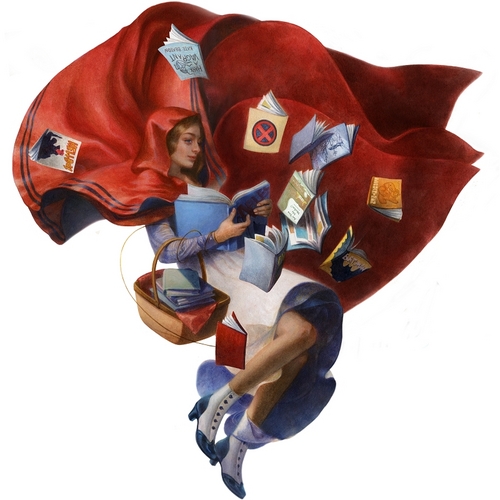
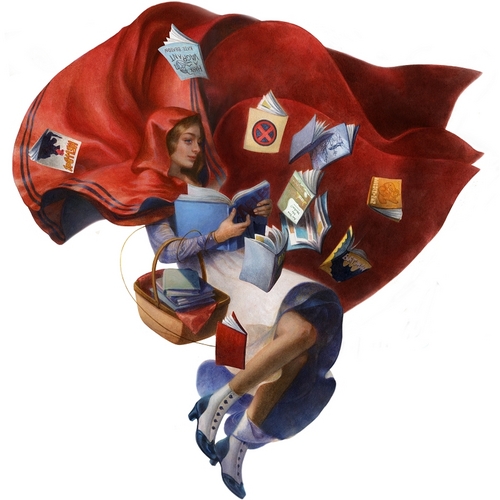
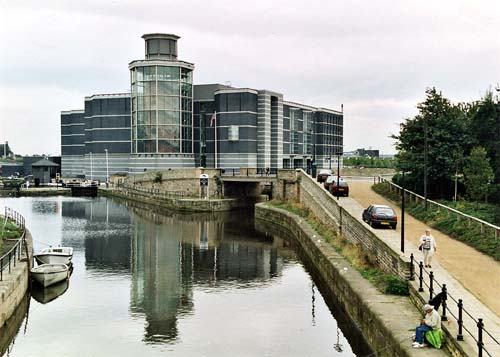
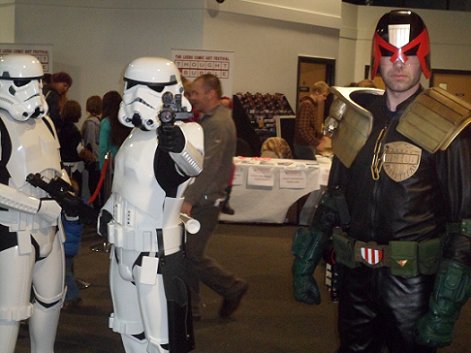
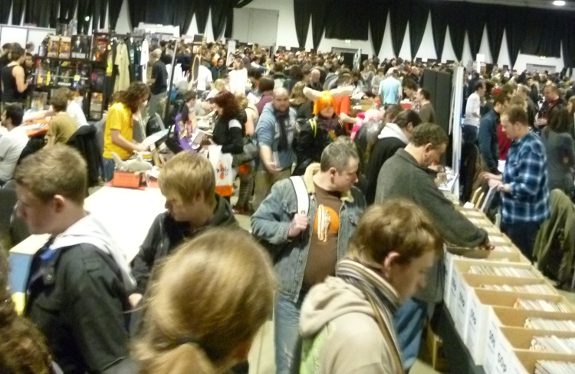
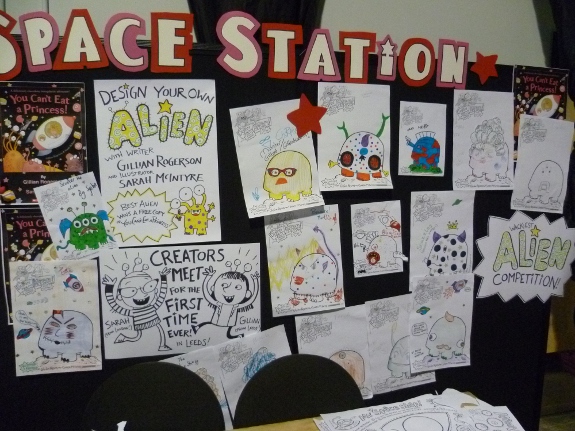
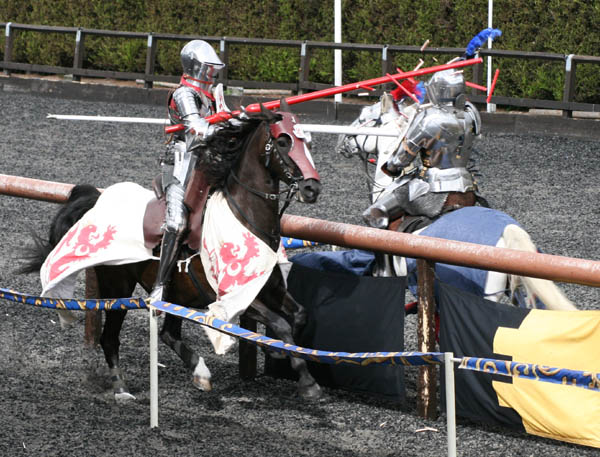
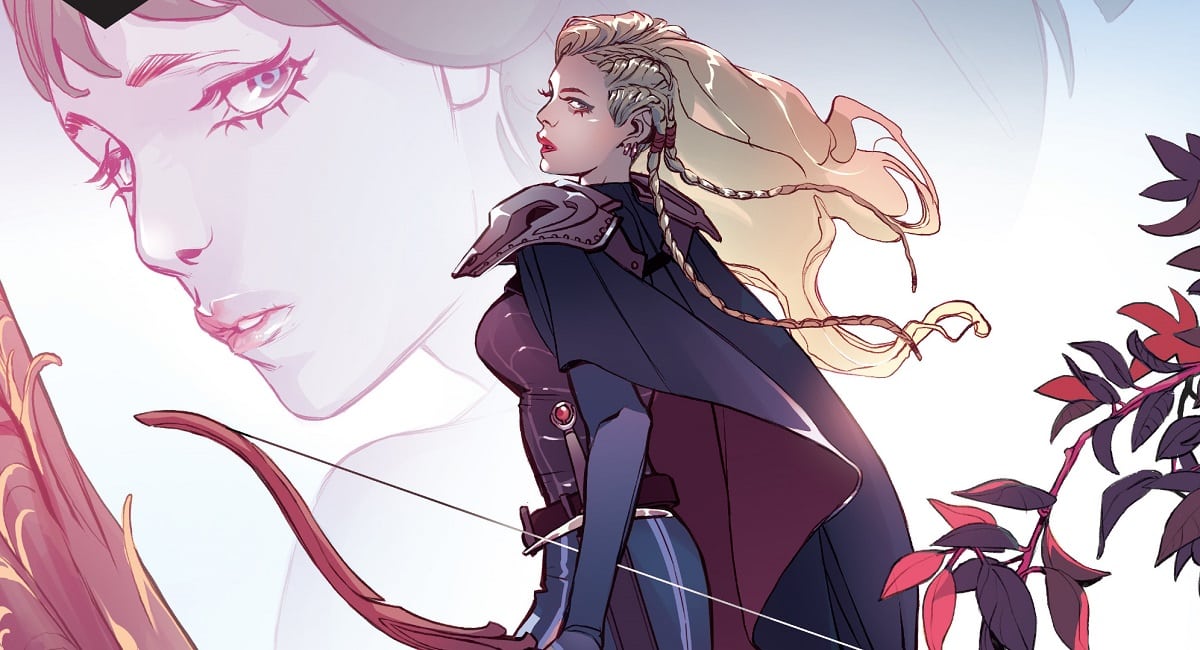
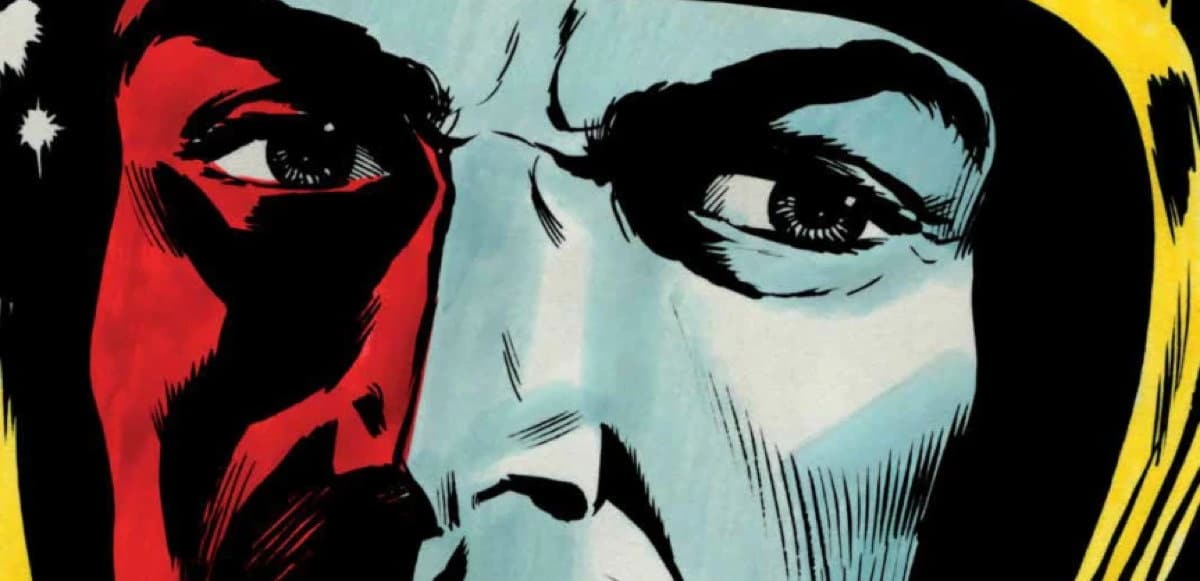
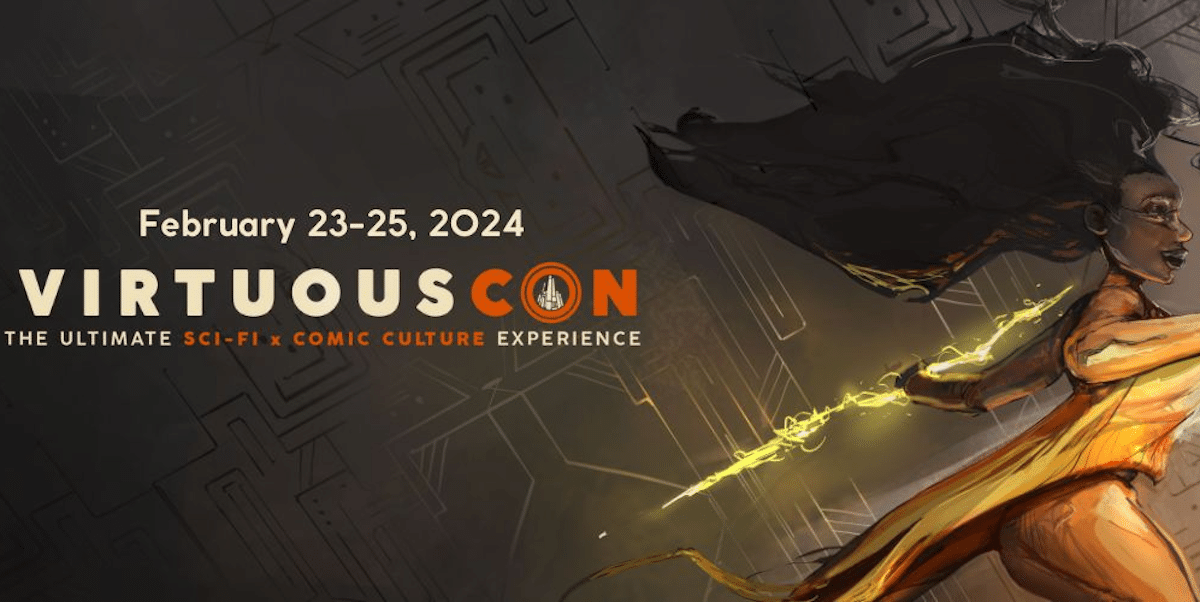


Comments are closed.